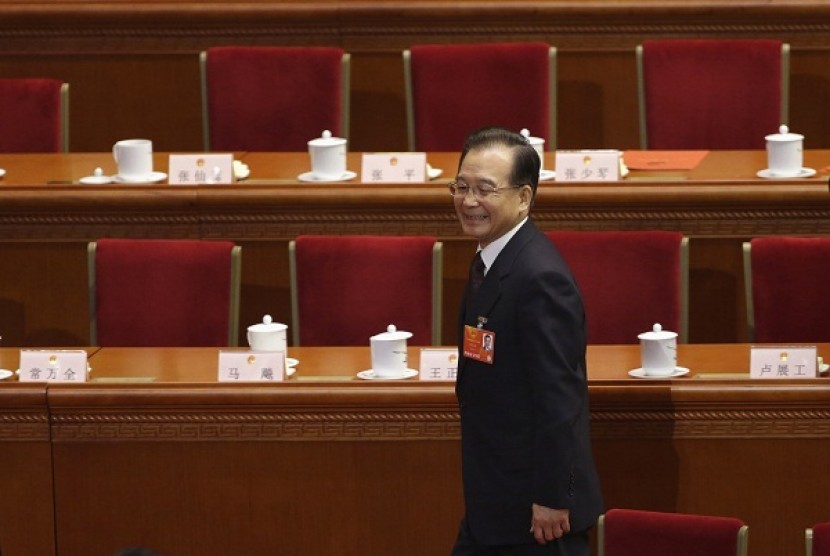REPUBLIKA.CO.ID, BEIJING - China's legislature formally chose Li Keqiang as premier on Friday, installing an English-speaking bureaucrat as the man in charge of the economy, the world's second-largest, and its aim of reviving growth through consumer-led expansion. The largely rubber-stamp National People's Congress, as expected, chose Li 57 (years) to replace Wen Jiabao.
Analysts have described the Wen years as a lost decade during which economic reforms slowed and state-backed industries tightened their grip on the economy. Both Xi and Li will need to deliver a blueprint to stabilize the real estate market. They need to do this quickly to calm a market in which real estate prices have soared 10-fold in major cities during the last decade.
Across China, people are resentful of the widening income inequality gap. China has 2.7 million USD millionaires and 251 billionaires, according to the Hurun Report, but 13 percent of its people live on less than 1.25 USD per day, according to United Nations data. The average annual urban disposable income is just 21,810 yuan (3,500 USD).
Failure to close this gap or deflate a dangerous property bubble could create a backlash that could even break the Communist Party's grip on power.
The new administration must also try to turn legions of cheap, assembly-line exporters into world-beating product-makers, while expanding domestic consumption, the economy's prime focus to ensure growth is more balanced.
Since he was elevated to the No.2 spot in the ruling party hierarchy last November -- a departure from the time of Wen, who was third-ranked -- Li has embarked on an urbanisation drive.
That project aims to bring 400 million people to cities over the next decade with the hope of turning China into a wealthy world power with economic growth generated by an affluent consumer class.
On the environment, an issue which is causing much anger across the country, Li added his voice to appeals to curb the toxic haze blanketing Beijing in January, but offered few specifics and said there was no quick fix.
In late November, Li promised to let non-governmental groups play a bigger role in fighting HIV/AIDS. But during his time in central Henan province from 1998 to 2004, Li was criticized by activists for presiding over a crackdown and helping to cover up the extent of an HIV/AIDS crisis there, when hundreds of thousands of impoverished farmers became infected through botched blood-selling schemes.
One of China's most prominent dissidents, Hu Jia, told Reuters he was detained in Henan, while Li was governor, for four days in 2002, when Hu was advocating for rural victims of AIDS there.
"When the AIDS epidemic exploded, everything that Li Keqiang did was with the aim of covering it up," Hu said. "He didn't allow the ordinary people to go to Beijing to petition, meet the media, and didn't allow Aizhixing, the institute I was working at, enter Henan to examine and report on the reality of the AIDS situation."
Hu said two state security officers beat and kicked him on Thursday till his head bled. He was summoned by police on a charge of "provoking quarrels and making trouble".
The Dongcang police station, where Hu was held, could not be reached for comment. On Thursday, China also appointed Zhou Qiang, the former party chief in the southern province of Hunan, as the head of the Supreme People's Court.


